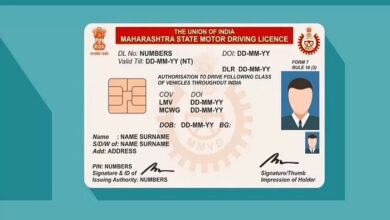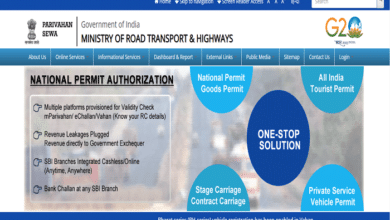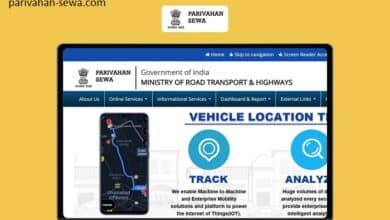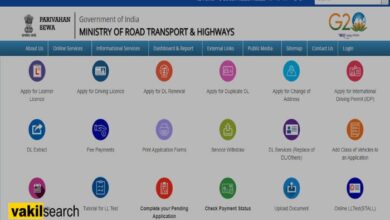Vahan Tax: Comprehensive Guide to Vehicle Taxation in India

Introduction
Vahan tax is a crucial component of vehicle ownership in India. This tax is levied by the government to maintain and develop infrastructure and public services related to transportation. Understanding Vahan tax, its calculation, payment process, and the legal requirements can help vehicle owners comply with regulations and avoid penalties. This comprehensive guide will delve into every aspect of Vahan tax, providing valuable insights and tips for vehicle owners.
What is Vahan Tax?
Vahan tax, also known as road tax or vehicle tax, is a mandatory fee imposed by the government on the owners of motor vehicles. This section explains the concept of Vahan tax, its purpose, and why it is essential for vehicle owners to be aware of their tax obligations. Understanding Vahan tax is the first step towards ensuring compliance and responsible vehicle ownership.
The Importance of Vahan Tax
Vahan tax plays a significant role in funding the maintenance and development of road infrastructure. This section discusses the importance of Vahan tax, highlighting how the collected revenue is utilized for building and repairing roads, bridges, and other transportation-related infrastructure. Emphasizing the importance of Vahan tax underscores its necessity for the overall development of the transportation network.
How is Vahan Tax Calculated?
Calculating Vahan tax can be complex, as it depends on various factors such as the type of vehicle, its weight, engine capacity, and state-specific regulations. This section provides a detailed explanation of how Vahan tax is calculated, including examples to illustrate the process. Knowing how Vahan tax is calculated helps vehicle owners understand their tax liabilities better.
State-wise Vahan Tax Rates in India
Vahan tax rates vary from state to state in India. This section offers a comprehensive overview of the state-wise Vahan tax rates, helping vehicle owners determine the tax applicable in their respective states. Understanding the differences in Vahan tax rates across states ensures that vehicle owners are well-informed about their specific tax obligations.
How to Pay Vahan Tax Online
Paying Vahan tax has become more convenient with the advent of online payment portals. This section provides a step-by-step guide on how to pay Vahan tax online through the official Vahan portal. Following these instructions ensures a seamless Vahan tax payment process, saving time and effort for vehicle owners.
How to Pay Vahan Tax Offline
While online payment is convenient, some vehicle owners may prefer or need to pay Vahan tax offline. This section outlines the process for paying Vahan tax offline, including the required documents and the steps to be followed at the Regional Transport Office (RTO). Understanding both online and offline payment methods ensures flexibility in fulfilling Vahan tax obligations.
Consequences of Non-Payment of Vahan Tax
Failure to pay Vahan tax can lead to severe penalties and legal consequences. This section highlights the repercussions of non-payment, including fines, vehicle impoundment, and legal action. Emphasizing the consequences of non-payment of Vahan tax underscores the importance of timely compliance.
Vahan Tax for Commercial Vehicles
Commercial vehicles are subject to different Vahan tax rates and regulations compared to private vehicles. This section discusses the specific Vahan tax requirements for commercial vehicles, including buses, trucks, and taxis. Understanding the Vahan tax for commercial vehicles ensures that business owners comply with the relevant tax laws.
Exemptions and Rebates on Vahan Tax
Certain vehicles and owners may be eligible for exemptions or rebates on Vahan tax. This section explores the criteria for obtaining exemptions or rebates, such as for electric vehicles, government vehicles, and vehicles owned by disabled individuals. Knowing about exemptions and rebates can help eligible vehicle owners reduce their Vahan tax liabilities.
How to Check Vahan Tax Status
Vehicle owners need to keep track of their Vahan tax status to ensure they are up-to-date with their payments. This section provides a guide on how to check Vahan tax status online through the Vahan portal. Regularly checking Vahan tax status helps avoid any lapses in compliance.
Role of RTO in Vahan Tax Collection
The Regional Transport Office (RTO) plays a crucial role in the collection and management of Vahan tax. This section explains the functions of the RTO related to Vahan tax, including registration, assessment, and enforcement. Understanding the role of the RTO in Vahan tax collection helps vehicle owners navigate the regulatory framework more effectively.
Tips for Managing Vahan Tax Efficiently
Efficient management of Vahan tax can save vehicle owners from potential penalties and legal issues. This section offers practical tips for managing Vahan tax, such as setting reminders for due dates, maintaining proper documentation, and seeking professional assistance when needed. Implementing these tips ensures smooth compliance with Vahan tax requirements.
Conclusion
Vahan tax is a vital aspect of vehicle ownership in India, contributing to the maintenance and development of transportation infrastructure. By understanding Vahan tax, its calculation, payment process, and legal requirements, vehicle owners can ensure compliance and avoid penalties. This comprehensive guide provides all the necessary information to navigate the complexities of Vahan tax, making the process straightforward and manageable.
FAQs
1. What is Vahan tax and why is it important? Vahan tax, also known as road tax or vehicle tax, is a mandatory fee imposed by the government on motor vehicle owners. It is essential as it funds the maintenance and development of transportation infrastructure.
2. How is Vahan tax calculated? Vahan tax is calculated based on factors such as the type of vehicle, its weight, engine capacity, and state-specific regulations. Each state in India has different tax rates and criteria.
3. How can I pay Vahan tax online? To pay Vahan tax online, visit the official Vahan portal, enter your vehicle details, calculate the tax amount, and complete the payment using the available online payment options.
4. What are the consequences of not paying Vahan tax? Non-payment of Vahan tax can result in fines, vehicle impoundment, and legal action. Timely payment is crucial to avoid these severe penalties.
5. Are there any exemptions or rebates on Vahan tax? Yes, certain vehicles and owners, such as electric vehicles, government vehicles, and vehicles owned by disabled individuals, may be eligible for exemptions or rebates on Vahan tax.





